Hey there, fellow language lovers! If you’ve ever found yourself scratching your head at the latest lingo being thrown around by the younger crowd, you’re not alone. Enter Gen Z slang – the fast-paced, ever-evolving language of the digital age. But fear not, we’re here to break it down for you! 📚
| Key Takeaways | Meaning |
|---|---|
| Gen Z Age Range | Born between mid-1990s and early 2010s |
| Slang Influences | Social media, memes, and internet culture |
| Characteristics | Brevity, inclusivity, and visual communication |
| Importance | Understanding Gen Z slang is crucial for effective communication |
Gen Z Slang: Decoding the Language of the Digital Natives 🚀
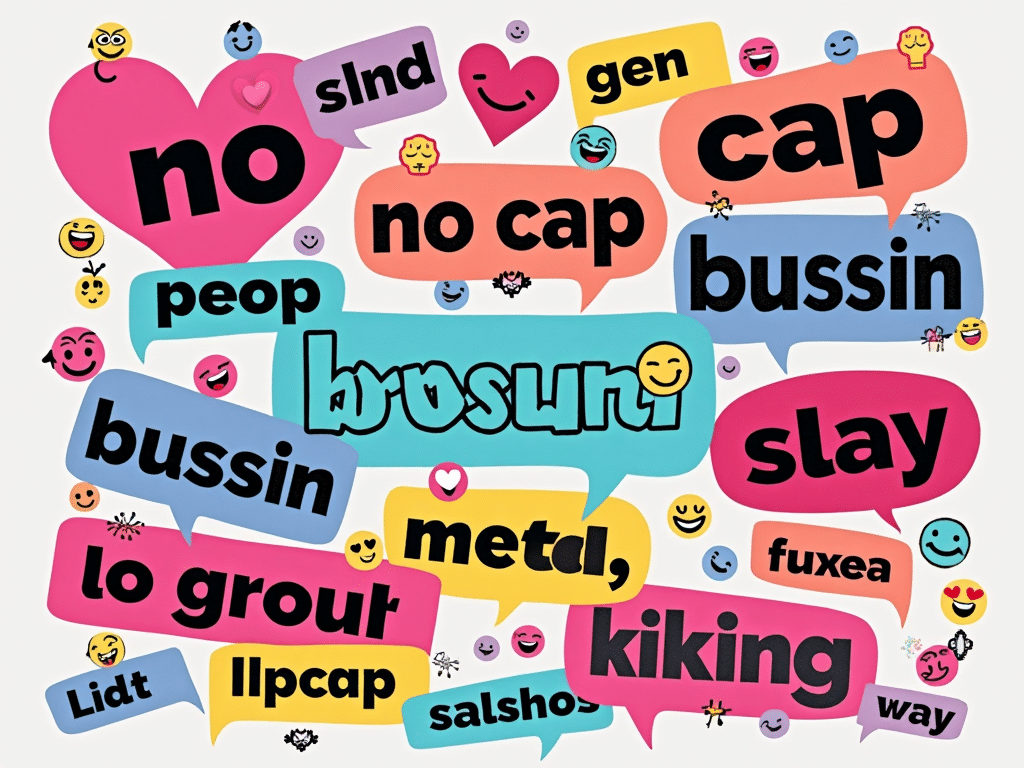
🤔 What is Gen Z?
Before we dive into the nitty-gritty of their slang, let’s define who we’re talking about. Generation Z, or Gen Z for short, refers to the demographic cohort born between the mid-1990s and the early 2010s. They’re the first generation to grow up with smartphones, social media, and constant internet access as the norm.
Also read: Popular Gen Z Phrases
Key Characteristics of Gen Z
- Digital Natives: They’ve never known a world without the internet.
- Diversity and Inclusivity: Gen Z is the most diverse generation yet, and they value inclusivity.
- Entrepreneurial Spirit: Many Gen Zers aspire to be their own bosses and create their own paths.
- Social and Environmental Consciousness: They care about making a positive impact on the world.
These characteristics heavily influence the way they communicate and the slang they use.
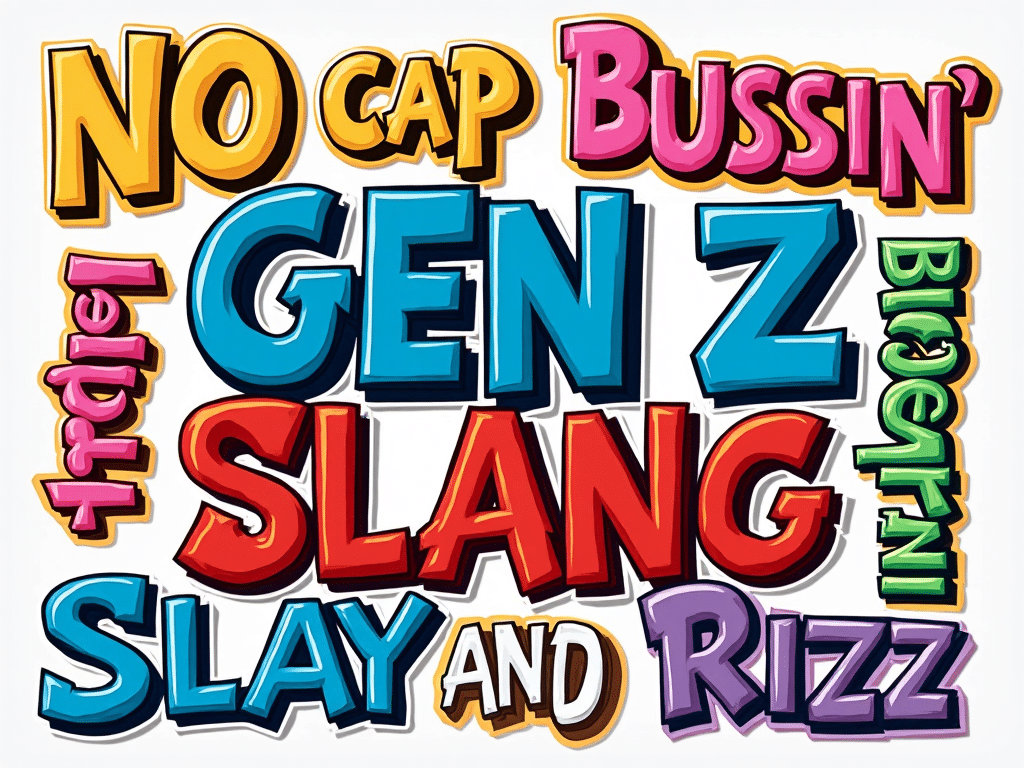
🌐 The Origins of Gen Z Slang
So, where does Gen Z slang come from? The answer is simple: the internet. Social media platforms, memes, and online communities are the breeding grounds for new slang terms. A word or phrase can go viral overnight and become part of the Gen Z lexicon.
But Gen Z slang isn’t just about being trendy – it’s also about efficiency and inclusivity. Many slang terms are shortened versions of longer phrases (think “sus” for “suspicious”) or acronyms (like FYP for “For You Page” on TikTok). This brevity is perfect for the fast-paced nature of online communication.
Moreover, Gen Z slang often aims to be more inclusive and less offensive than slang from previous generations. Terms that were once used as insults are being reclaimed and given new, positive meanings.
🎨 Characteristics of Gen Z Slang
Now that we know where Gen Z slang comes from, let’s look at some of its defining features:
- Acronyms and Abbreviations: FOMO, IYKYK, TBH – Gen Z loves to shorten things up.
- Emojis and Visual Communication: A picture is worth a thousand words, and Gen Z knows it. 🎉
- Memes and Internet Humor: From “yeet” to “weird flex but ok,” memes heavily influence Gen Z slang.
- Social Awareness and Inclusivity: Terms like “woke,” “tea,” and “slay” have taken on new meanings in the Gen Z vernacular.
These characteristics make Gen Z slang unique and sometimes challenging for older generations to understand. But don’t worry, we’re here to help bridge that gap!
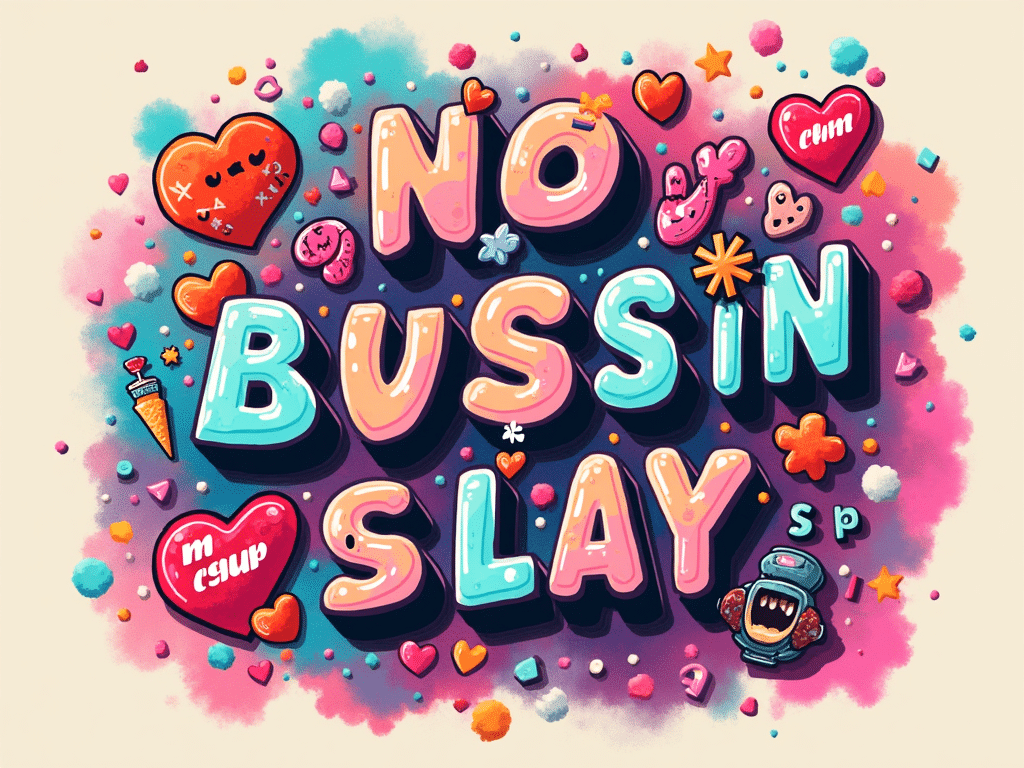
📚 Popular Gen Z Slang Terms and Phrases
Alright, it’s time for the moment you’ve been waiting for – the slang itself! Here are some of the most popular Gen Z slang terms and phrases:
- Bet: A way to agree with someone or express approval.
- Cap: To lie or exaggerate.
- Salty: To be angry, upset, or bitter.
- Slay: To do something exceptionally well.
- Yeet: An exclamation of excitement or approval.
- Flex: To show off or boast.
- Finsta: A fake Instagram account, usually more private and personal.
- Stan: An overly enthusiastic fan.
- Tea: Gossip or news.
- Vibe: The overall mood or atmosphere.
But wait, there’s more! Check out our articles on based, bussin, and sus for even more Gen Z slang goodness.
🗣️ Using Gen Z Slang in Context
Now that we’ve got a handle on some popular Gen Z slang terms, let’s see how they’re used in real-life situations. Remember, context is key when it comes to understanding and using slang effectively!
- Friend 1: “Did you see Sarah’s new haircut?”
Friend 2: “Yeah, it’s totally bussin! She’s slaying that look.”
Translation: Sarah’s new haircut looks great, and she’s rocking it. - Coworker 1: “I heard the boss is giving us all a raise.”
Coworker 2: “No cap? That’s lit!”
Translation: Are you serious? That’s awesome! - Sibling 1: “Mom said we have to clean the whole house before the party.”
Sibling 2: “Ugh, that’s so extra. I’m salty about it.”
Translation: That’s excessive. I’m annoyed about it. - Student 1: “I stayed up all night studying for this test.”
Student 2: “Weird flex but ok.”
Translation: That’s an odd thing to brag about, but I acknowledge it.
See how these terms add flavor and nuance to everyday conversations? It’s like a secret code that can express complex emotions and reactions in just a few words.
🌈 The Impact of Gen Z Slang
Gen Z slang isn’t just a passing fad – it’s having a real impact on language and communication as a whole. Here’s how:
- Shaping Mainstream Language: Many Gen Z slang terms are making their way into everyday speech, even among older generations. Remember when “LOL” was considered youth slang? Now everyone uses it!
- Influencing Marketing and Advertising: Brands are catching on to Gen Z slang to connect with younger audiences. But beware – using slang incorrectly can lead to some major cringe moments!
- Creating Generational Divides: While slang can bring people together, it can also create barriers between generations. It’s like speaking a different language sometimes!
- Reflecting Social Change: Gen Z slang often reflects changing attitudes towards social issues. Terms like “woke” and “cancel culture” have sparked discussions about awareness and accountability.
🤓 Gen Z Slang in Different Contexts
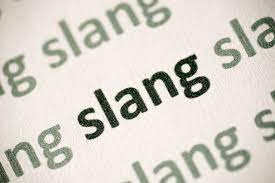
It’s important to note that Gen Z slang isn’t a one-size-fits-all situation. The way it’s used can vary depending on the context:
- Social Media: This is where Gen Z slang thrives. Platforms like TikTok, Instagram, and Twitter are hotbeds for new slang terms.
- Texting: Brevity is key in text messages, so acronyms and shortened words are super common here.
- In-Person Conversations: Some slang terms translate well to face-to-face chats, while others might feel awkward when spoken out loud.
- Formal Settings: Generally, it’s best to avoid using slang in professional or academic contexts unless you’re specifically discussing it.
Remember, knowing when and where to use slang is just as important as knowing what it means!
🔮 The Future of Gen Z Slang
So, what’s next for Gen Z slang? While we can’t predict the future with 100% accuracy (if we could, we’d be billionaires by now!), we can make some educated guesses based on current trends:
- Continued Evolution: Slang, by its very nature, is always changing. What’s cool today might be cringe tomorrow. Gen Z slang will keep evolving, with new terms popping up and old ones fading away.
- Increased Global Influence: Thanks to the internet, slang terms can spread globally faster than ever. We might see more international slang making its way into Gen Z vocabulary.
- AI and Tech Integration: As AI becomes more prevalent, we might see new slang related to AI and emerging technologies. Maybe “That’s so AI” will be the next big compliment?
- Mainstream Adoption: As Gen Z grows older and enters the workforce, some of their slang will likely become more widely accepted and used across generations.
- Visual Language Evolution: With the rise of visual platforms like TikTok and Instagram, we might see more slang that incorporates gestures, expressions, or even dance moves.
💡 How to Use Gen Z Slang Effectively
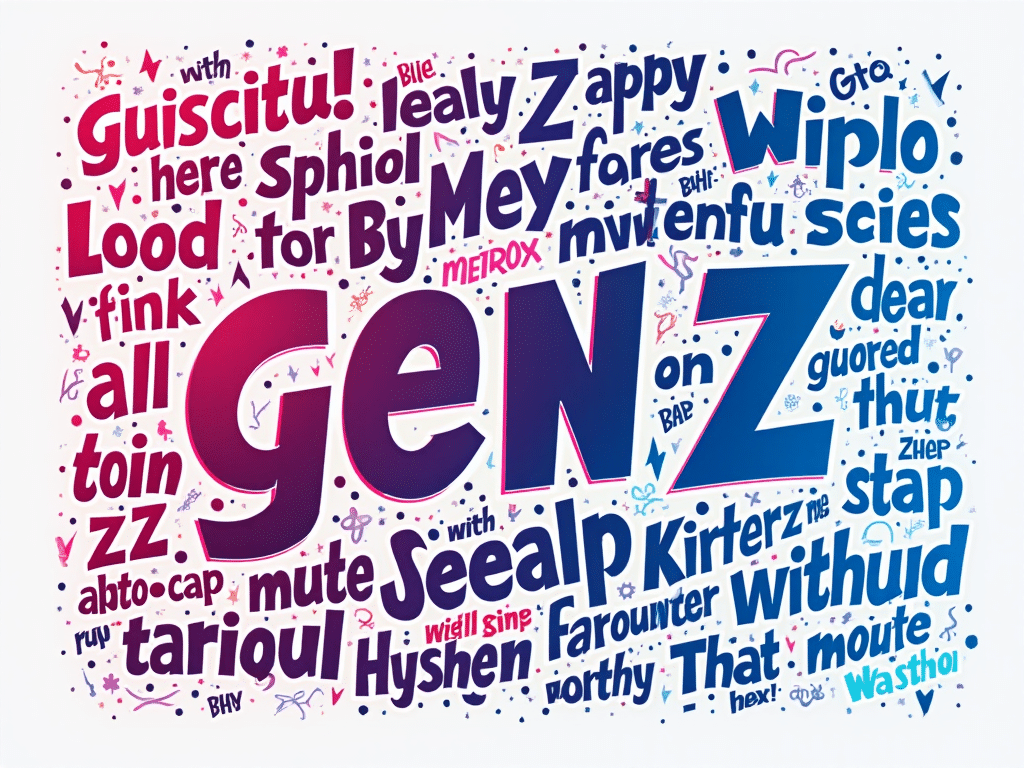
Want to incorporate some Gen Z slang into your vocabulary? Here are some tips to help you slay (use it effectively) and avoid being sus (suspicious or out of place):
- Listen and Observe: Pay attention to how Gen Z uses slang in context. Social media is a great place to start.
- Start Small: Begin with a few common terms and use them sparingly. Don’t try to use every slang term you’ve learned in one sentence!
- Be Authentic: Only use slang that feels natural to you. Forced slang usage can come across as inauthentic or try-hard.
- Know Your Audience: What’s appropriate among friends might not be suitable in a professional setting. Always consider who you’re talking to.
- Stay Updated: Slang evolves quickly. What’s cool today might be outdated tomorrow. Keep an ear out for new terms and changing meanings.
- Don’t Overdo It: Using too much slang can make you hard to understand and might come across as trying too hard. Balance is key!
- Be Respectful: Some slang terms have cultural or historical significance. Be mindful of the origins and implications of the slang you use.
🎓 Gen Z Slang: A Living Language
It’s crucial to understand that Gen Z slang isn’t just a bunch of random words thrown together. It’s a living, breathing part of language that reflects the values, experiences, and culture of an entire generation.
Gen Z slang is:
- Efficient: It conveys complex ideas quickly.
- Inclusive: It often aims to be more accepting and less offensive than traditional slang.
- Creative: It plays with language in new and unexpected ways.
- Responsive: It reacts quickly to current events and trends.
By understanding and appreciating Gen Z slang, we’re not just learning new words – we’re gaining insight into how a whole generation thinks, communicates, and views the world.
🌟 The Gen Z Slang Cheat Sheet
To help you navigate the world of Gen Z slang, here’s a quick reference guide to some popular terms:
| Term | Meaning | Example |
|---|---|---|
| Bet | Okay, sure | “Want to grab lunch?” “Bet!” |
| Sus | Suspicious | “That guy is acting kinda sus.” |
| No cap | No lie | “No cap, this is the best pizza ever.” |
| Slay | To do something exceptionally well | “You aced that test? Slay, queen!” |
| Tea | Gossip or drama | “Spill the tea about what happened last night! |
Remember, this is just the tip of the iceberg. Gen Z slang is vast and ever-changing, so don’t be afraid to ask if you’re unsure about a term’s meaning!
🤔 Frequently Asked Questions About Gen Z Slang
Q: Is it okay for older generations to use Gen Z slang?
A: Absolutely! Just be mindful of context and don’t overdo it. Natural usage is key.
Q: How can I keep up with new Gen Z slang terms?
A: Social media platforms like TikTok and Twitter are great for staying updated. You can also check out slang dictionaries online.
Q: Will using Gen Z slang make me look unprofessional?
A: It depends on the context. In casual settings, it can make you relatable. In formal or professional settings, it’s best to stick to standard language.
🎭 The Gen Z Slang Identity
In many ways, Gen Z slang is more than just a way of speaking – it’s a form of identity. It’s a way for young people to express themselves, connect with their peers, and sometimes even challenge societal norms.
By embracing slang, Gen Z is:
- Creating a unique generational identity
- Pushing the boundaries of language
- Expressing complex emotions and ideas efficiently
- Building community through shared language
🏁 Wrapping Up: The Gen Z Slang Takeaway
So there you have it, folks – a deep dive into the world of Gen Z slang. From its origins in internet culture to its impact on mainstream communication, Gen Z slang is a fascinating linguistic phenomenon that reflects the values and experiences of a digital-native generation.
Whether you’re a member of Gen Z looking to expand your slang vocabulary, or someone from an older generation trying to bridge the communication gap, understanding Gen Z slang is key to effective communication in today’s digital world.
Remember:
- Gen Z slang is constantly evolving
- Context is crucial for understanding and using slang correctly
- Slang reflects broader cultural and social trends
- Using slang authentically is more important than using it frequently
So go forth and slay your Gen Z slang game! And remember, if you ever feel lost in the sea of new terms, just say “IDK” (I don’t know) – it’s a classic that never goes out of style. 😉
Want to dive deeper into the world of internet slang? Check out our articles on text abbreviations and emoji meanings to level up your digital communication skills!
Stay curious, stay open-minded, and most importantly, stay slayin’! 🚀

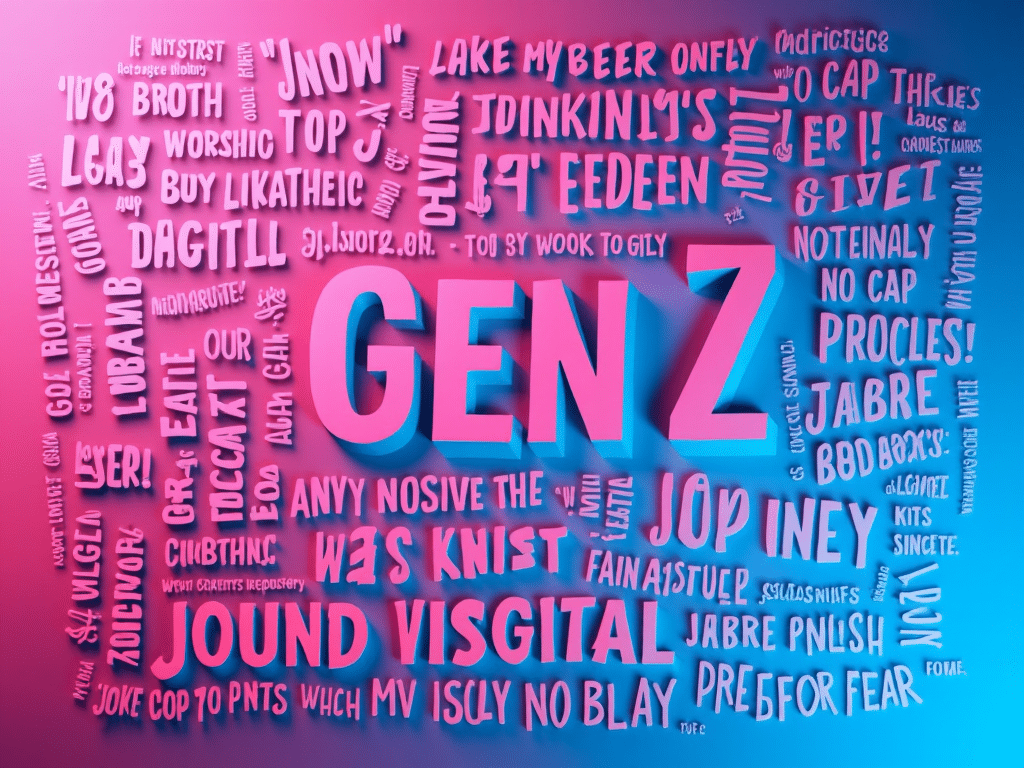
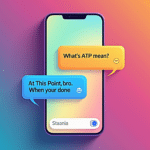



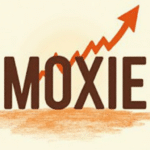

43 thoughts on “Gen Z Slang”